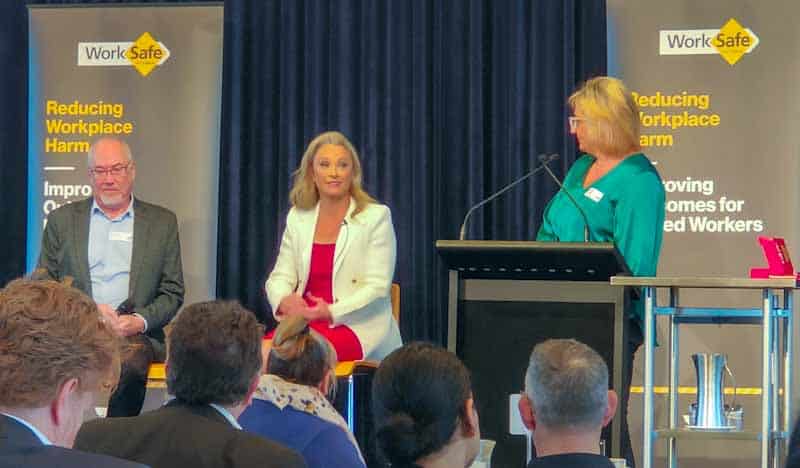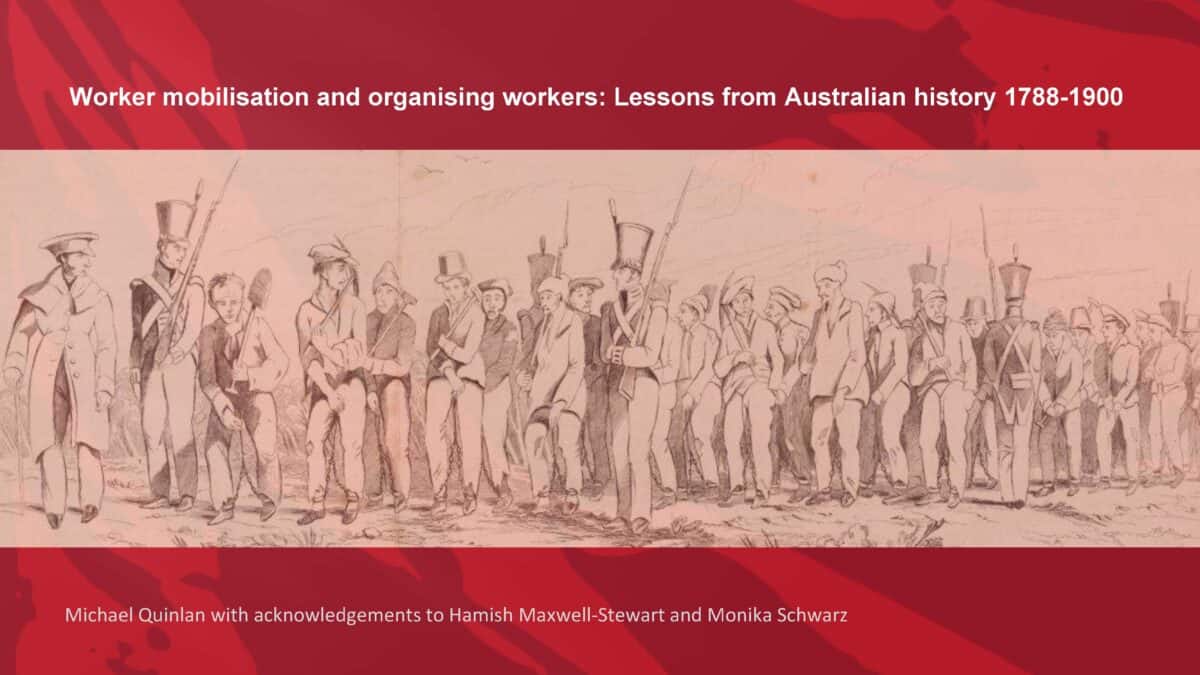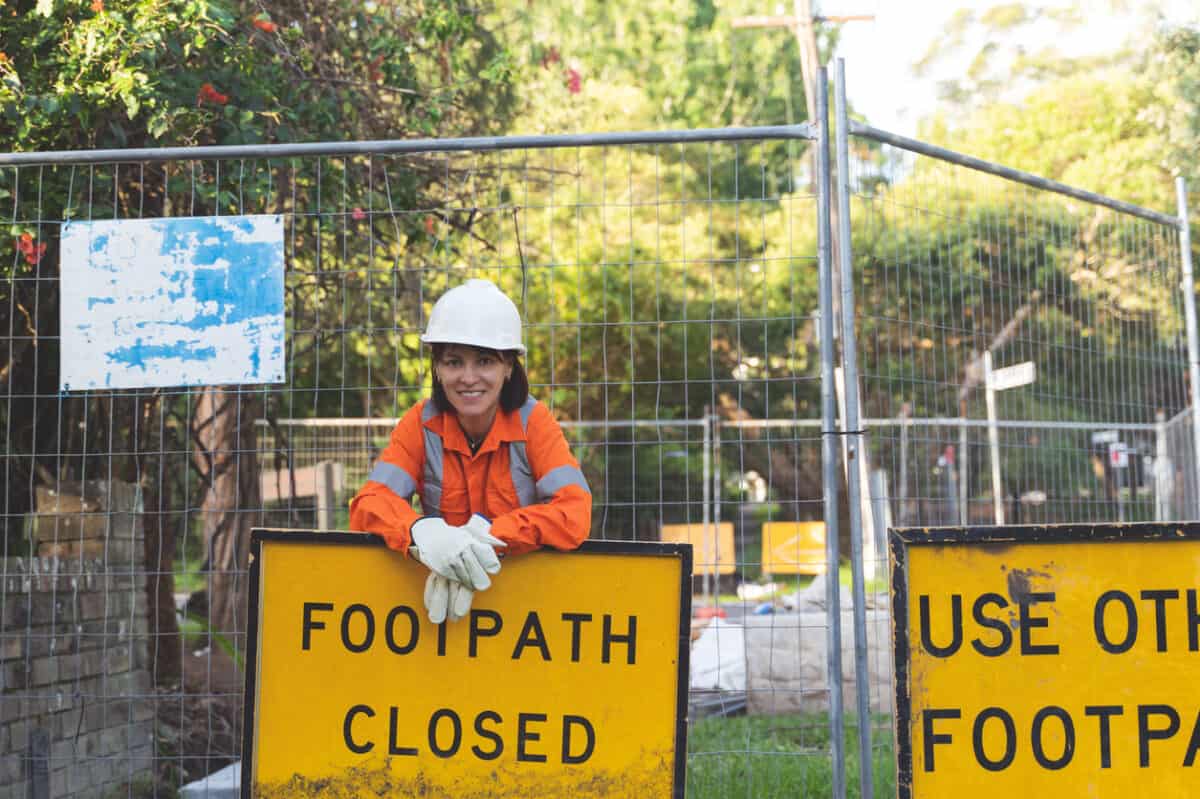Last week the Australian Institute of Health and Safety (AIHS) National Conference contained some excellent speakers and one or two stinkers. (I will not be reporting on the last speaker of the conference, who spent his first ten minutes “roasting”. i.e. insulting the delegates!) Safe Work Australia’s Marie Boland was an important and informative speaker who nudged the occupational health and safety profession to be more active.
Category: industrial relations
International Conventions are attractive but largely academic
Last week, Australia’s Parliament released an information paper on a “National Interest Analysis” of International Labour Organization Convention No. 187: Promotional Framework for Occupational Safety and Health Convention adopted in Geneva on 15 June 2006. Does this mean anything to the local occupational health and safety (OHS) profession? Yeah, Nah, Maybe.
Different OHS messages to different audiences
Last week, WorkSafe Victoria held its annual Business Leaders’ Breakfast. The keynote speaker was Karen Maher, who spoke about the need for an effective and respectful workplace culture that would foster a healthy psychosocial environment. Her presentation would have been familiar to many of the occupational health and safety (OHS) and WorkSafe personnel in the audience, but it may have been revolutionary for any business leaders. Maher outlined the need for change but not necessarily how to change or the barriers to change.
The event did provide a useful Q&A session and afforded the new WorkSafe Victoria CEO, Joe Calafiore, his second public speaking event in a week.
An economics perspective on overwork
As Ingrid Robeyns’ Limitarianism book hits the Australian bookshops, an earlier examination of the role of excessive profits of “affluenza” from 2005 is worth considering. How does this relate to occupational health and safety (OHS)? The prevention of harm and the reduction of risk are determined by employers deciding on what they are prepared to spend on their workers’ safety, health, and welfare. Employers are looking desperately for effective ways to meet their new psychosocial harm prevention duties. Economists identified strategies in 2005.
Worker mobilisation and OHS
Occupational health and safety (OHS) professionals, like anyone else, base their decisions and advice primarily on their living memory. This partly explains the trend of emphasising “lived experience” sometimes over history or research. But it is understandable that we trust experiences from people face-to-face over what we read or what Grandad sort-of remembers from his first job. But history is important, especially when new sources of history are being unearthed or old sources are re-evaluated.
Recently, Michael Quinlan has been working on the recently digitised records of Australia in convict times and the 1800s. This research, conducted with colleagues, reveals new perspectives on industrial relations and worker health and safety. Recently, he presented to the Australian Council of Trade Unions (ACTU) on Moibilising and Organising Workers – Lessons from Australian History 1788-1900. (I know, but bear with me).
HSRs are one option for Consultation, not the be-all and end-all
WorkSafe Victoria’s obsession with Health and Safety Representatives (HSRs) was displayed at last week’s 2023 WorkSafe Awards night. The HSR of the Year nominations generated rowdiness in the audience, absent from the rest of the evening. The political context for emphasising HSRs in workplaces is understandable; there is always a close (and financial) relationship between trade unions and left-leaning political parties like that currently governing Victoria. HSRs and occupational health and safety (OHS) committees have been part of Victoria’s OHS legislation since 1985.
But only as one element of Consultation – a concept and principle that applies to all Victorian workplaces, not just those with trade union members or HSRs.
Where is the OHS debate on zero hours contracts?
Australia is experiencing a period of industrial reforms that is returning some power to workers and, according to some critics, the trade union movement – working hours, same pay for the same job, changing employment status, right to disconnect and more. A curious omission is a discussion of the concept of Zero Hours Contracts. This type of employment is crucial to improving mental health at work as it strengthens a worker’s job control, economy and security.







